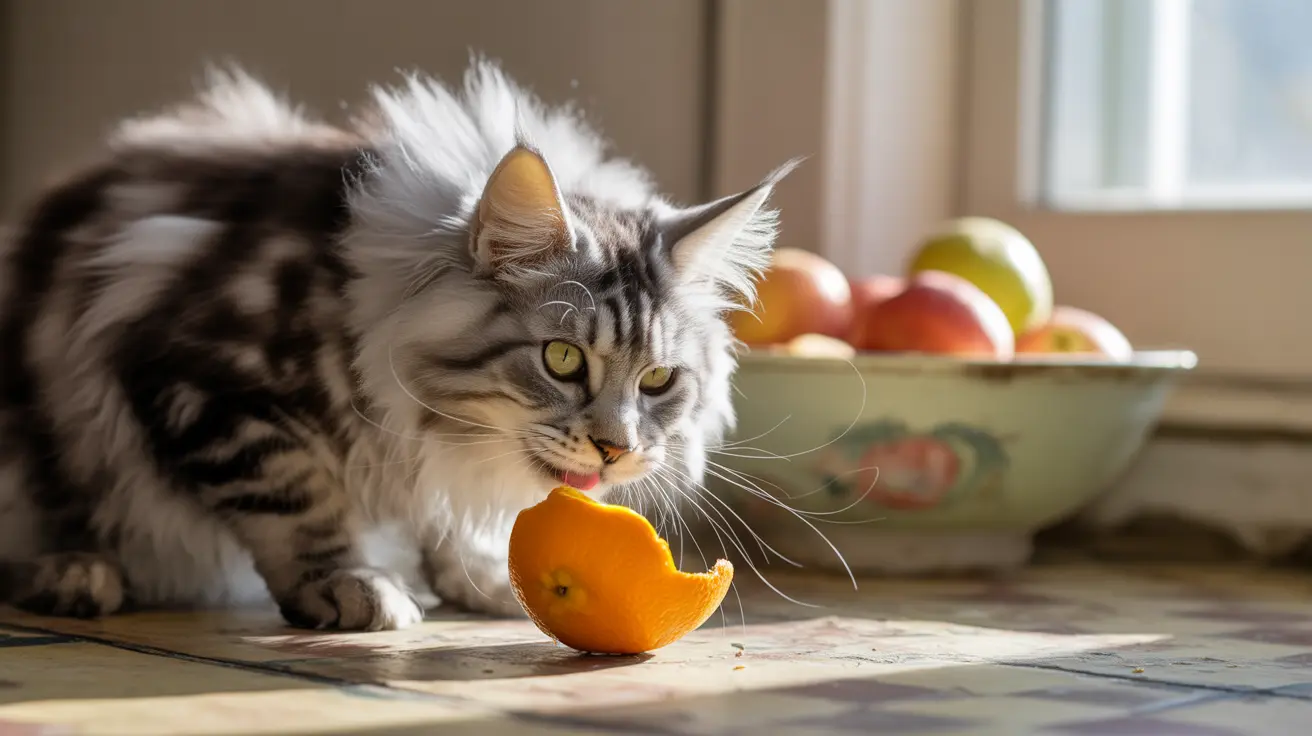Why Orange Peels are Toxic to Cats
Orange peels contain several compounds that make them particularly dangerous for cats:
Essential Oils in Citrus Peels
The peels contain concentrated essential oils like limonene and linalool, which are highly toxic to cats. Cats lack the liver enzymes needed to process these compounds safely, making even small amounts potentially harmful.
Psoralens and Other Toxic Compounds
These naturally occurring compounds can cause severe reactions in cats, including photosensitivity and digestive issues. Orange peels contain higher concentrations of these toxins compared to the fruit's flesh.
Signs of Orange Peel Poisoning in Cats
If your cat has consumed orange peel, watch for these symptoms:
- Immediate vomiting and diarrhea
- Excessive drooling
- Depression or lethargy
- Skin sensitivity to sunlight
- Tremors or weakness
- Loss of coordination
- Decreased body temperature
Emergency Response to Orange Peel Ingestion
If you suspect your cat has eaten orange peel, take these immediate steps:
- Remove any remaining orange products
- Monitor your cat closely for symptoms
- Contact your veterinarian or pet poison hotline
- Save any evidence of ingestion
- Follow professional medical advice
Prevention and Safe Alternatives
To keep your cat safe from orange peel toxicity:
- Store citrus fruits in closed containers
- Dispose of peels in secured trash bins
- Keep citrus-based cleaners away from cats
- Offer cat-safe treats instead of human food
- Consider growing cat grass for safe nibbling
Frequently Asked Questions
Can cats safely eat orange peels or any part of an orange?
No, cats cannot safely eat any part of an orange, including the peel, flesh, or juice. All parts contain compounds toxic to cats and should be strictly avoided.
What symptoms should I watch for if my cat accidentally eats orange or orange peel?
Watch for vomiting, diarrhea, excessive drooling, lethargy, tremors, and skin sensitivity. Contact your veterinarian immediately if you notice these symptoms.
Why are oranges and their peels toxic to cats?
Oranges and peels contain essential oils (limonene and linalool), psoralens, and citric acid that cats cannot properly metabolize, making them toxic to felines.
What should I do if my cat ingests orange peel or citrus fruit?
Remove any remaining citrus, monitor your cat for symptoms, and contact your veterinarian or animal poison control immediately for guidance.
Are there any fruits that are safe for cats to eat as treats?
Yes, small amounts of certain fruits like watermelon (seedless), blueberries, and cantaloupe are safe for cats. However, always consult your veterinarian before introducing new foods.
Remember, cats are obligate carnivores whose bodies are designed to process meat-based proteins. While some fruits can be safe in moderation, citrus fruits and their peels should never be part of your cat's diet. When in doubt, stick to veterinarian-approved cat food and treats to ensure your feline friend's safety and well-being.






